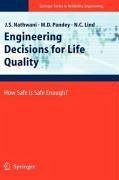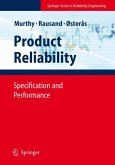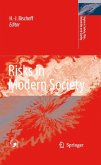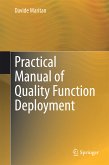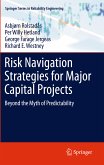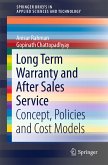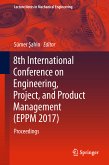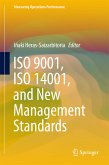The principal focus of Engineering Decisions for Life Quality: How Safe is Safe Enough? is on the development of guidance for establishing rational standards of practice. Standards should meet the requirement of utilizing resources to achieve the maximum net overall benefit to society within society's capacity to commit such resources.
The ideas discussed within this book will be of interest to engineers; advanced undergraduate and graduate students; public health officials; and risk specialists.
Dieser Download kann aus rechtlichen Gründen nur mit Rechnungsadresse in A, B, BG, CY, CZ, D, DK, EW, E, FIN, F, GR, HR, H, IRL, I, LT, L, LR, M, NL, PL, P, R, S, SLO, SK ausgeliefert werden.

